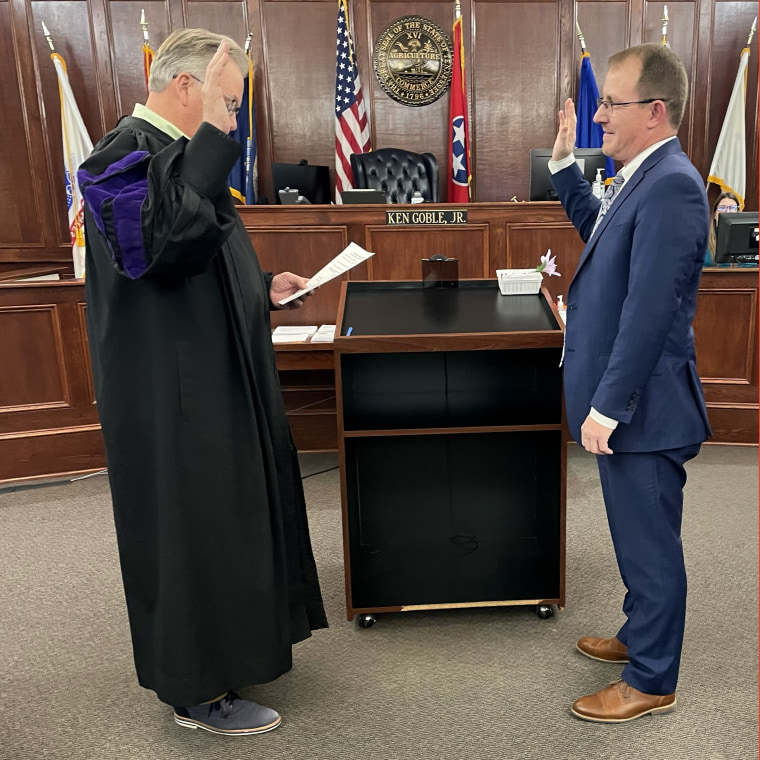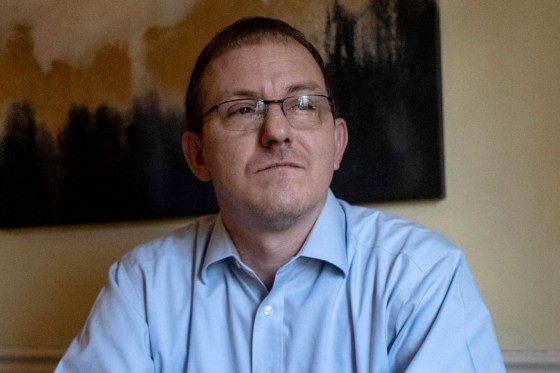The Justice Department found that two Tennessee organizations discriminated against a lawyer who was denied his law license for nearly three years and forced to pay thousands of dollars for evaluations because he was using a medication to treat his opioid use disorder.
The findings, published last Tuesday in a letter to the organizations — the Tennessee Board of Law Examiners and the Tennessee Lawyers Assistance Program — build on the Justice Department’s efforts to protect the millions of people in recovery from opioid addiction from discrimination. It is its third such case about employment and licensing and the first related to the legal profession.
The detailed public letter lays out how the organizations together violated the Americans with Disabilities Act, which protects people with substance use disorder, when they “forced him to choose between his law license or continued treatment as prescribed as necessary by his treating physician.”
The Justice Department letter detailed the organizations’ “burdensome” actions against the lawyer based on “speculation and stigma.” They included requiring him to undergo psychological and physical evaluations at his own expense, attend a treatment program and stop using buprenorphine, a Food and Drug Administration-approved medication his doctor prescribed to treat opioid use disorder.
The lawyer, referred to in the letter by his initials, D.s., is Derek scott, whose battle for his law license was chronicled by NBC News in March. scott confirmed that D.s. referred to him and that he worked closely with Justice Department investigators.
The Justice Department did not respond to requests for comment.
"This is a powerful finding by the Department of Justice that applies beyond admission to practice law in Tennessee, since there are similar licensing restrictions in other states and for other professions,” said David sinkman, a former federal prosecutor, now an attorney with civil rights law firm Kaplan & Grady, who specializes in substance use discrimination cases but did not work with scott.
The restrictions imposed on people like scott, the investigation by the U.s. attorney for the Middle District of Tennessee concluded, “do not serve the goal of ensuring fitness to practice law” and “are in fact counterproductive to ensuring that attorneys are fit to practice and violate the Americans With Disabilities Act.”
scott, who first passed the bar exam in 2021, said in an interview that he felt “validated” by the findings. “I felt like they had put up an obstacle that they knew I couldn’t overcome,” he said.
The requirements were dropped in December 2023, after the Justice Department and NBC News began investigating his case. He was sworn into the Tennessee bar in January and now works as a lawyer, primarily in criminal defense, while he continues to take his medication.

“It makes me feel good that if there are other people out there, they can see this,” he said. “I wished that when I started out, when I first passed the bar exam, there was a case like this I could have pointed to.”
In its letter, the U.s. attorney’s office issued five recommendations for the Tennessee legal organizations to promptly implement to comply with the law. They included not prohibiting or restricting bar applicants and attorneys from taking medication to treat opioid use disorder and ending the practice of inquiring into applicants’ diagnoses of, or treatment for, mental health or substance use disorders.
It also warned of “appropriate action” if the two organizations did not enter into voluntary compliance negotiations. In other cases, the Justice Department has sued entities that did not comply with its recommended reforms.
Both the Tennessee Board of Law Examiners and the Lawyers Assistance Program declined to comment on the findings.
‘Burdensome’
scott always dreamed of being a lawyer, but it seemed out of reach after he began using opioids in the 1990s. Like millions of other people, his dependence on them soon spiraled into addiction.
More than 9 million adults in the U.s. require treatment for opioid use disorder, according to a recent Centers for Disease Control and Prevention report, but only 25% are able to access federally approved medications like methadone and buprenorphine. They have been found to be effective in curbing withdrawal symptoms and cravings and are safe to use long term, but they remain strikingly underused nationwide.
After having struggled for years, scott was prescribed buprenorphine in 2011. He now credits it with giving him his life back. He enrolled in college, then law school, interned with a state appellate judge and thought he had finally achieved his dream when he passed the bar exam in 2021.
The discrimination started after scott disclosed his use of the medication in an interview for his license approval, according to the Justice Department. The Tennessee Lawyers Assistance Program, which helps attorneys with substance use issues, required him to undergo an evaluation at an out-of-state clinic. scott paid thousands of dollars for the evaluation, which determined that he should submit to state monitoring for five years, attend an inpatient treatment program for at least six months and "detox" off of buprenorphine. The cost of the treatment, he was informed, could be as much as $30,000.
scott was allowed to seek a second opinion from an in-state clinic. But it, too, recommended he stop using his medication. scott’s longtime doctor “emphatically” disagreed with the recommendations, according to the Justice Department letter and records reviewed by NBC News.
Even though both evaluating clinics found no “negative symptoms that affect his ability to practice law or in any deficiencies in legal or employment performance,” wrote Thomas J. Jaworski, the U.s. attorney for the Middle District of Tennessee, “they nonetheless disapproved of his use of buprenorphine based on their own, unfounded stereotypes about the medication.”

The Justice Department also found discrimination occurred in a second case when the Tennessee organizations imposed a similar pattern of onerous requirements on another lawyer, identified as C.B., who had undergone addiction treatment more than 10 years before he passed the bar exam.
Like scott, they imposed “burdensome” requirements on him that came at “significant economic harm,” including that he pay for an out-of-state evaluation.
He was ultimately allowed to get his law license but with strict conditions, including that he submit to random drug testing, provide all records of his mental health treatment and attend a four-day-a-week outpatient drug treatment program. He lost his job after he told his employer about the drug treatment program requirement, according to the Justice Department findings. That was not all he lost.
His therapist refused to send detailed treatment records to the lawyers assistance program and instead asked to send only attendance records. When the program insisted, the therapist resigned from treating him.
“As a result, C.B. lost his job, and his therapist,” Jaworski wrote.


